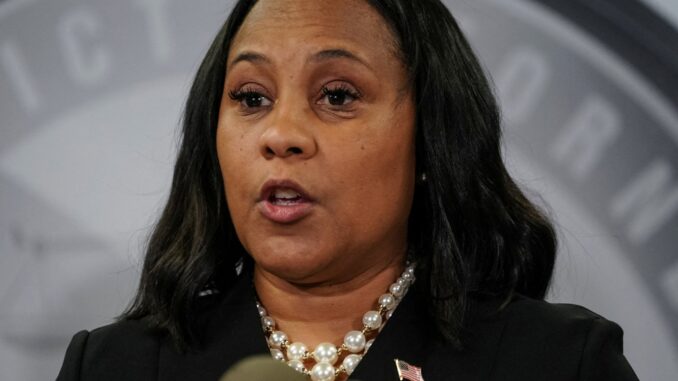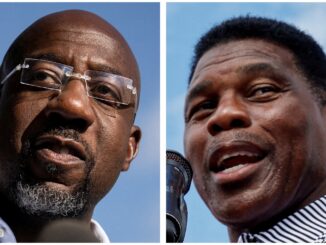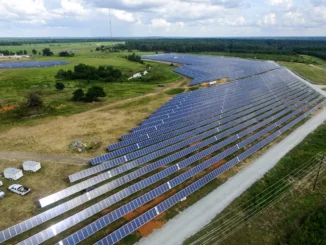
Former United States President Donald Trump has been indicted for his alleged efforts to overturn the 2020 presidential election result in the state of Georgia, which current President Joe Biden won.
Fulton County District Attorney Fani Willis began her investigation into the case shortly after the release of a recording on January 2, 2021, of Trump and Georgia’s top election official, Secretary of State Brad Raffensperger, in which Trump suggests Raffensperger should “find 11,780 votes” so he cold overtake Biden and win the state.
The indictment delivered on Monday by Willis’s office states, “Trump and the other Defendants charged in this Indictment refused to accept that Trump lost, and they knowingly and wilfully joined a conspiracy to unlawfully change the outcome of the election in favour of Trump.”
The 98-page indictment lists 19 defendants, including Trump, his White House chief-of-staff Mark Meadows, Trump lawyer and former New York Mayor Rudy Giuliani and attorney John Eastman.
“Democracy relies upon losses of elections [and] presidential candidates accepting the result,” Brendon O’Connor, a lecturer at the University of Sydney, told Al Jazeera. “You can’t say you’re for democracy only when you win, and Donald Trump is clearly in breach of the American Constitution.
“In any serious democracy, that should lead to a serious investigation, and these charges I think are entirely justified as a result.”
This is the fourth criminal case filed against the former president. The others are a federal indictment also over trying to overturn the 2020 election results; a federal classified documents case, in which Trump is accused of mishandling secret government files after he left office; and a New York case involving hush money paid to an adult film star.
Here’s everything you need to know about the latest indictment against the Republican frontrunner in the 2024 presidential election:
What happens next?
After a grand jury issued Monday’s indictment, there will be a formal reading of the charges in court, and defendants will be asked to enter pleas.
Trump’s attorney could ask the court to waive the arraignment, and he could enter a plea of not guilty without having to appear in court. Bail would also be determined.
Trump would probably be released in exchange for a promise to return to face the charges at trial. He will have his mugshot taken upon being taken into custody.
(Al Jazeera)
How likely is a trial?
Trump is known for using the courts to draw out cases, and the prosecution could be slowed down by novel legal questions due to the unprecedented nature of the case.
Legal experts have said the delay could benefit the former president as he campaigns for next year’s election.
He is likely to challenge the prosecution by claiming it is motivated by political bias, accusations he has already made on social media.
He then may try to move the trial out of Fulton County, where Biden won 73 percent of the vote in 2020, by arguing that the jury pool there would be biased against him.
What happens if the case goes to trial?
The process of selecting a jury could be lengthy due to the difficulties of finding members considered impartial towards a defendant who is so well-known and polarising and who would have the time needed to dedicate to the trial.
To convict, a jury of 12 people would all need to agree beyond a reasonable doubt that Trump is guilty.
The judge may declare a mistrial if the jury cannot reach a unanimous verdict.
If Trump is convicted, he would likely appeal or seek a new trial by claiming the verdict was inconsistent with evidence or contrary to the law.
The election interference indictment in the southeastern US state is the fourth case against the former US president.
ENB Top News
ENB
Energy Dashboard
ENB Podcast
ENB Substack



